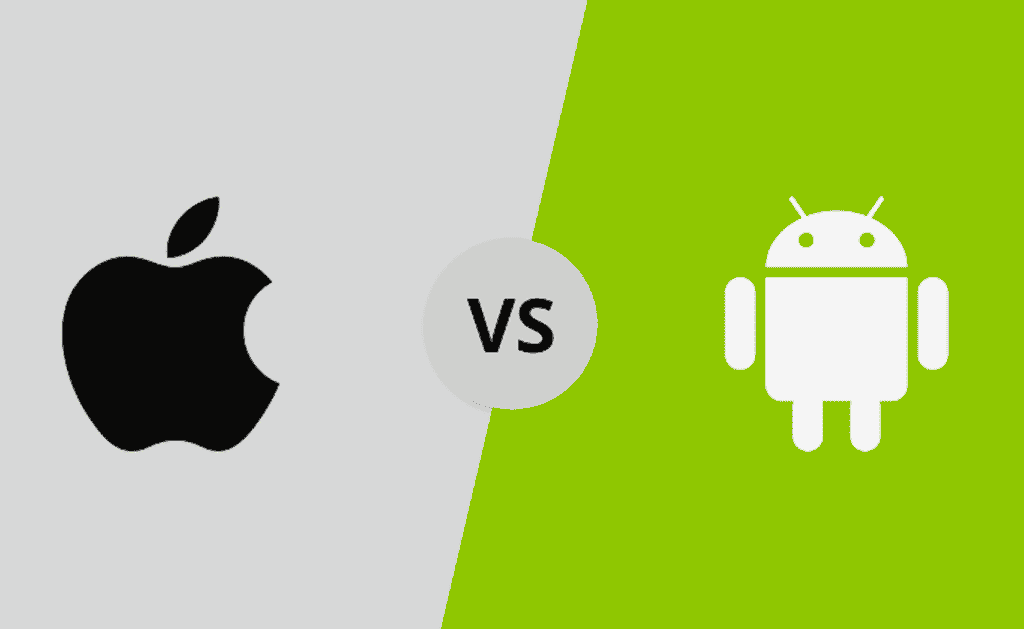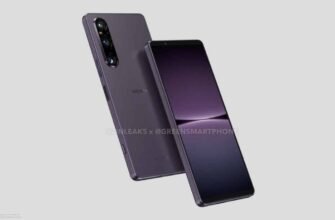In the smartphone industry, we basically have two camps: the Android camp and the iOS camp. These are currently the two main operating systems in the smartphone industry. While Android is owned by Google, Apple owns iOS. One of the main differences between these camps is that while Android is used by many manufacturers, iOS is exclusively for the Apple iPhone.
And this explains why the number of Android users is almost three times that of iOS. However, considering the progress made by iOS, this system is very good. Another important difference between Android and iOS smartphones is the amount of RAM. As a rule, Android devices have a much larger amount of RAM than their counterparts on iOS. The question is why?

Recently, ZTE Axon 30 Ultra Space Edition was officially released. This high-end flagship Android smartphone comes with 18GB of RAM and 1TB of built-in storage. This also suggests that mainstream Android flagship smartphones now require 20GB of RAM. In fact, with the new memory expansion technology, a couple of Android flagships already support 20GB of RAM.
Simply put, the maximum amount of RAM on an Android smartphone is 18 GB. On the contrary, the largest amount of RAM on the iPhone is only 6 GB. Thus, the Android camp is three times ahead of iOS in terms of RAM. Why are Android phones getting more RAM?
Compared to Android phones that range from 8GB to 12GB and then up to 18GB, Apple only needs half that, or even less. Is Apple lagging behind or is Cook a "stinger"? In fact, the real reason is not as simple as saving money.
There are three main reasons why iOS memory capacity is less. However, before we look at the reasons, let's talk about RAM in general.
What is RAM and ROM?
Before comparing the difference between iOS and Android memory management mechanisms, we need to understand the meaning of some professional terms. RAM (Random Access Memory) is also called RAM. The size of the RAM directly determines how many applications can be opened in the background of the phone. On the other hand, ROM (Read-Only Memory) is called internal memory and determines how many applications you can install on your phone and how many photos and songs you can store on it.
If you open several applications while using the mobile phone, when the mobile phone memory is insufficient, the mobile phone will automatically close some applications. This is done in order to make room to meet the needs of new programs. This is known as "killing background activity".
When your phone habitually “kills the background”, it inevitably takes a toll on your phone's performance and battery life. This is due to the fact that it will take some time to reopen the application and you will feel that the device is running slowly. Thus, when you work with a large number of applications, the more storage, the smoother the smartphone works.
Here are three main reasons why iOS is comfortable with its "small" RAM size.
1. iOS tombstone mechanism can save more memory
In everyday use, the types and number of programs we run are similar. Why does Android need more memory than Apple to run smoothly? Because Android uses a real background. Programs running in the foreground and hanging in the background occupy the same amount of memory. This forces the system to use more memory. The Apple background is a virtual background, and when an app is running in the background, its activity stops.
When the user interrupts the task, the system records the current state of the program at the moment of interruption. And then the program will stop. When it is necessary to resume the task, the program will continue from the state that immediately preceded the interruption. Thus, the tombstone mechanism in iOS saves more memory than Android when its application is running in the background.
Thus, with the same number of background apps running, iOS requires much less memory than Android. Therefore, Android usually needs more memory to ensure the smooth operation of mobile phones.
2. Apple's strict controls and sandbox mechanism make storage requirements less than Android
In addition to the tombstone mechanism of iOS, Apple's strict censorship and sandbox mechanism also make such a large amount of storage unnecessary. Because the Android system does not have a strict verification system, it is extremely open and the market is uneven. This leads to an endless stream of cluttered apps. These programs have a number of "rogue actions" - all kinds of random launches and arbitrary access to permissions. In fact, on Android, you can open an app and 50 other apps will start working with it in the background. This instantly reduces storage capacity.
However, with Apple, everything is different. All App Store apps must be officially reviewed by Apple, and permissions require user consent. After an active logout, the system will completely kill the program and all processes. And it won't open them quietly in the background.
In addition, iOS uses a sandbox mechanism, and each application is placed in an independent sandbox and cannot interfere with each other's access. Of course, there is no possibility of actively waking up other applications. Therefore, under strict control, iOS software has much lower storage requirements than Android.
3. Apple has a single push notification service that reduces storage space requirements
Apple's push notification service also reduces the amount of storage used to some extent. Messages from the iOS system are gradually delivered to you via an Apple server. This allows you to receive notifications without opening the app. Of course, this will practically reduce the amount of memory that the system uses now.
Due to the large number of Android mobile phone manufacturers and open source Android, there is currently no single push alliance. If you require push services, your messages may only be sent to you through the application or third-party service platforms.
Visnovok
Thanks to Apple's tombstone mechanism and its official strict verification, sandbox mechanism and mandatory push notification service, Apple does not need a large storage space to ensure its speed. On the other hand, because of Android's "real history", open source, and other reasons, you need more memory to provide a first-class user experience.
So it's not that Apple lags behind Android and Cook is not "stingy". The truth is that there are some differences in the management of the two systems. Of course, the more memory, the better, but due to the difference in the RAM management mechanism between iOS and Android, there is no way to directly compare them.




